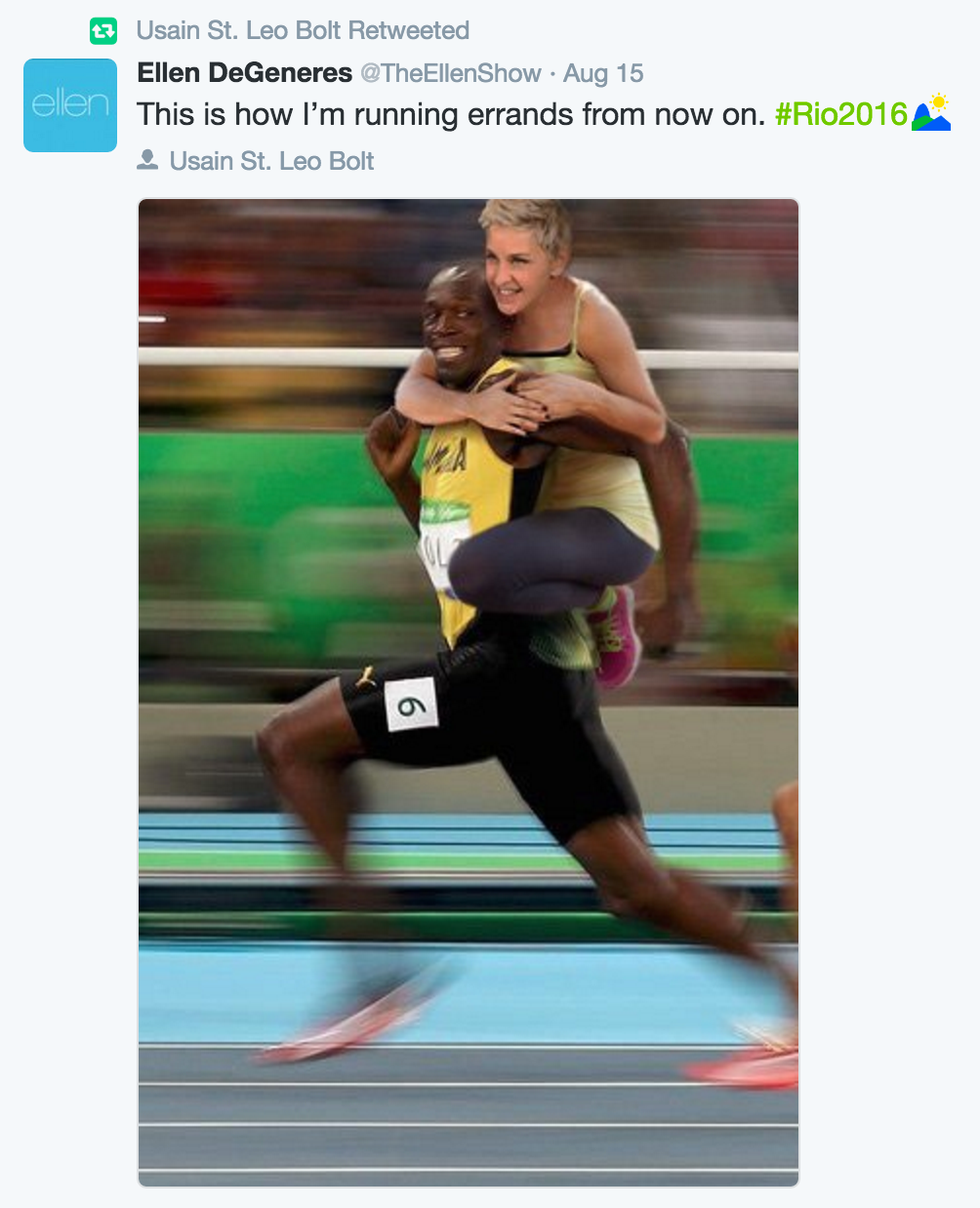It seems that nowadays people can find offense in just about anything. Social media platforms, like Twitter, can partially contribute to this. Before social media, a typical political conversation would occur around the dinner table and most likely wouldn't end up on the news. But this generation skips the dinner table and spends their afternoon firing back on Twitter. Hateful words like "racist" or "misogynist" or "homophobe" come up in the comments section far too often. Of course, racism, sexism and homophobia are major problems in society today, and should definitely be called out. But sometimes, it's not, and people drag these issues into things that would have been considered humorous before the Twitter-era.
The most recent example would be with Ellen DeGeneres and her Usain Bolt tweet. Look at the tweet below yourself.
Usain Bolt retweeted this tweet, clearly not offended by it, but scroll down to the comments section and you will find people outraged by this picture, calling Ellen a racist. Now if Ellen was black and Usain Bolt was white would it have elicited the same reactions? Most likely not.
Incidents like this are drawing attention away from what really is racist and what really needs to change. Fueling unnecessary anger and hatred won't end racism. Part of fixing the problem is realizing what the problem is. Ellen isn't the problem. The problem is that blacks and Latinos are more likely to get pulled over by the police than a white man. The problem is that if a white man and a black man are charged with rape, only the black man will be painted as a monster in the media, and the white man's swim times will read the headlines.
We are losing sight of the bigger picture. Twitter like any social media platform is a wonderful place to express our opinions on what's going on around us, to raise awareness and motivate others to help make this world a better place. However, lately all I see are debates on #prayforisreal vs #prayforpalestine, #prayforparis vs #prayfortheworld, #blacklivesmatter vs #allivesmatter. This is what people are arguing about on social media. Let's forget that fact that millions of innocent people are dying and focus more on what we put after a hashtag.
In essence, Twitter isn't the problem. Its users are. We need to take advantage of this opportunity that is available for this generation, the generation not familiar with those dinner table talks mentioned earlier. However, only if we stop finding offense in things not offensive, can we move on and solve the actual problems corrupting our society.












































